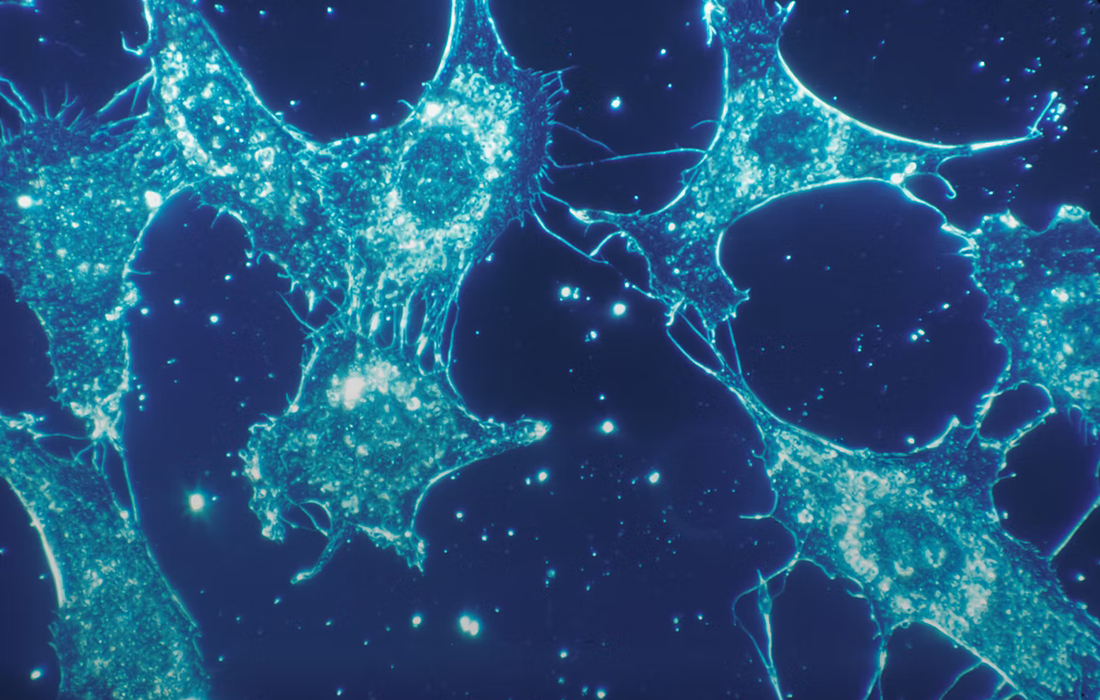Stem Cell Therapy for Specific Conditions
The Role of Exosomes in Autoimmune Diseases
What are Exosomes?
Exosomes are small membrane-bound vesicles (30–100 nm) that are secreted by different types of cells. They were first found in reticulocytes (immature red blood cells) of sheep in 1983 and named “exosomes” by Johnstone in 1987.
Different cells can secrete exosomes under normal and also pathological conditions. They are produced by the invagination of lysosomal nanoparticles, and released into the extracellular matrix after fusion with the outer membrane and cell membrane.
Exosomes are composed of a lipid bilayer, and they contain proteins, miRNAs and mRNAs. The lipid bilayer protects the genetic information from degradation.
They are found in various body fluids, such as blood, urine, milk and saliva, and have a variety of important roles, including transmitting signals and molecules to other cells, transport of genetic materials, and modulation of the immune response.
Exosomes in Immunity
Recent evidence has indicated that exosomes play an important role in immune modulation and they are associated with the pathogenesis of different autoimmune conditions, such as rheumatoid arthritis (RA), Sjogren’s syndrome (SS), systemic lupus erythematosus (SLE) and ulcerative colitis (UC).
Exosomes are secreted by many immune and nonimmune cells, including T cells, B cells, dendritic cells (DC) and macrophages. Exosomes from these cells have been shown to mediate either immune stimulation or immune modulation.
When they are secreted from professional antigen-presenting cells (APCs), such as lymphocytes and dendritic cells (DCs) they are enriched in MHC class I and II complexes, and some other costimulatory molecules, required to transmit signals by the immune system.
Exosomes in Autoimmune Diseases
Exosomes can be carriers of pathogen-associated and damage-associated molecular patterns, cytokines and autoantigens in autoimmune diseases. But, they also have therapeutic potential and might be used as biomarkers for autoimmune diseases.
One example is that in RA synovial exosomes contain citrullinated proteins, including the fibrin a-chain fragment, fibrin b-chain, fibrinogen b-chain precursor and fibrinogen D fragment which are known to be autoantigens involved in the pathogenesis of the disease.
Mesenchymal stem cells (MSCs) have been found to have immunomodulatory and differentiation effects, and have potential therapeutic value for RA and multiple health conditions. Exosomes that are derived from mesenchymal stem cells are more effective, less toxic and more stable than their parental cells. They can transfer various nucleic acids, proteins and lipids from the paternal cells to the recipient cells playing an important role in the pathogenesis of RA.
In mice models of RA, exosomes from MSCs can inhibit the immune function of T and B lymphocytes, while also increasing the number of T regulatory cells (Treg cells), which modulate the immune response.
Studies on other conditions such as ulcerative colitis have found that using intravenous injections of bone marrow-derived MSCs exosomes can reduce the severity of colitis, disease activity index (DAI) and histological damage.
Conclusions
Exosomes could work as immunomodulatory agents in the treatment of inflammatory, hypersensitivity and autoimmune disorders. They have tremendous potential due to their properties, such as their ability to avoid immune responses, natural stability in the blood and ability to cross biological barriers, including the blood-brain barrier.
Other characteristics of exosomes are that they have a relatively long life span in vivo, can be isolated from various sources and stored at − 80 ℃ for a long time.
The evidence suggests the potential of exosomes for the treatment and prevention of flares in autoimmune diseases like rheumatoid arthritis and lupus.
Therapeutics with MSCs and Exosomes at ZignaGenix
At ZignaGenix we are always evaluating new ways to help our patients and develop better protocols to help them with their different conditions. In the case of autoimmune diseases we have evaluated the latest research to increase the efficacy of our therapies.
We combine the immunomodulatory benefits of both mesenchymal stem cells and MSCs-derived exosomes. Both from the Wharton’s Jelly umbilical cord and provide our patients with high doses of both stem cells and exosomes to increase these properties and have a much better regulation of the immune system.
Sources:
Miao, C., Wang, X., Zhou, W., & Huang, J. (2021). The emerging roles of exosomes in autoimmune diseases, with special emphasis on microRNAs in exosomes. Pharmacological Research, 169, 105680. doi:10.1016/j.phrs.2021.105680
Tan, L., Wu, H., Liu, Y., Zhao, M., Li, D., & Lu, Q. (2016). Recent advances of exosomes in immune modulation and autoimmune diseases. Autoimmunity, 49(6), 357–365. doi:10.1080/08916934.2016.1191477
Image from:
Photo by National Cancer Institute on Unsplash

